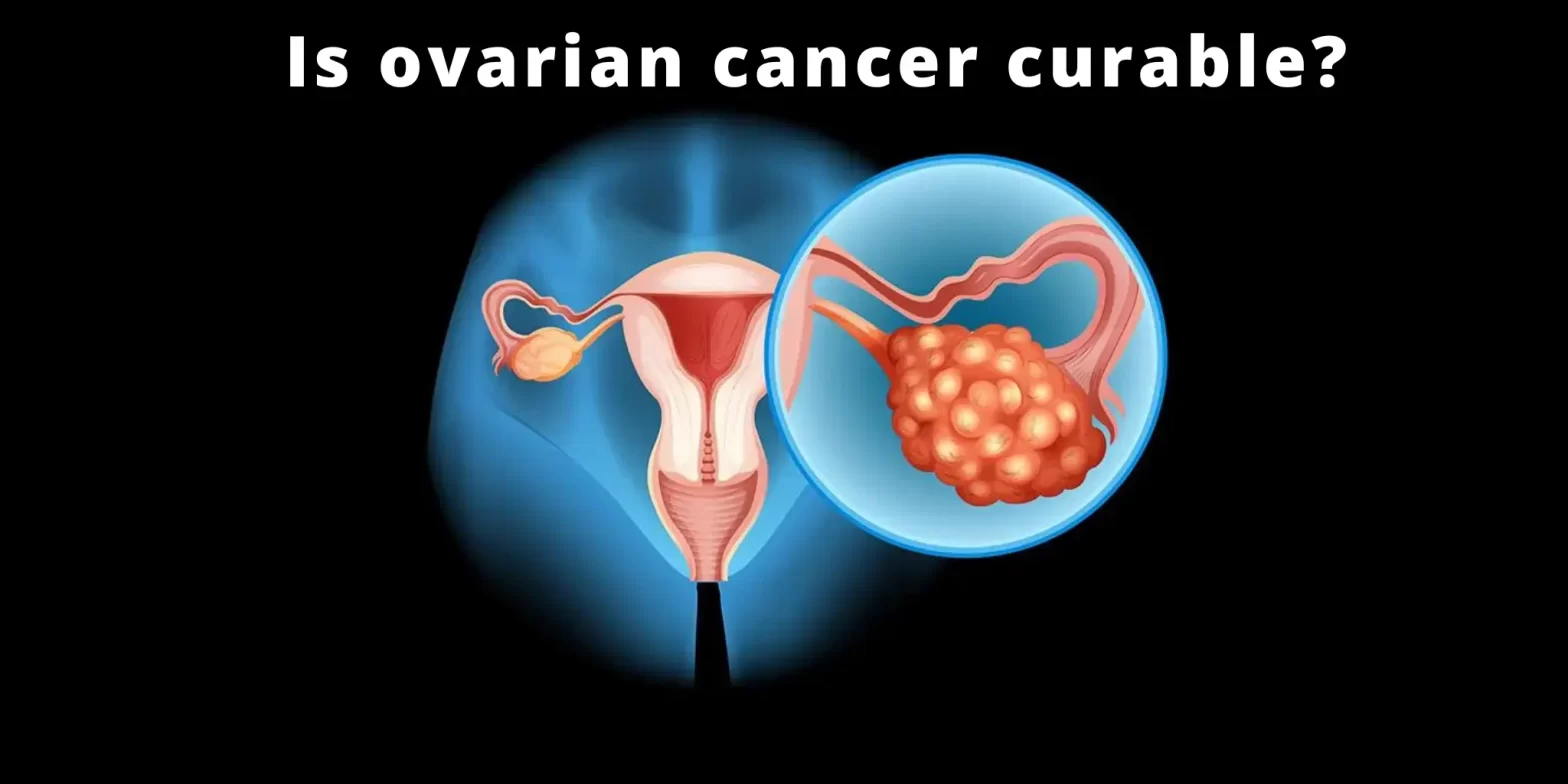|
Getting your Trinity Audio player ready...
|
Ovarian cancer is a type of cancer that originates in the ovaries, which are a pair of reproductive glands in women. Ovarian cancer is often referred to as the “silent killer” because its symptoms are often vague and develop slowly over time.
Ovarian cancer is the fifth most common cause of cancer deaths among women and is a serious health concern for women of all ages. The question on everyone’s mind is, “Is ovarian cancer curable?” The answer is not a simple one, as the curability of ovarian cancer depends on several factors, including the stage of the cancer and the patient’s overall health.
Causes of Ovarian Cancer
The exact cause of ovarian cancer is unknown. However, there are several factors that may increase the risk of developing this type of cancer. Some of these factors include:
Age
Women over 50 years old are at higher risk of developing ovarian cancer.
Genetics
A family history of ovarian, breast, or colorectal cancer increases the risk of developing ovarian cancer. Women with a BRCA1 or BRCA2 gene mutation are also at higher risk.
Reproductive History
Women who have had more than one child, who started their menstrual cycles before the age of 12, and who have never been pregnant are at higher risk.
Hormonal Replacement Therapy
Long-term use of estrogen replacement therapy after menopause may increase the risk of ovarian cancer.
Endometriosis
Women with endometriosis, a condition where the tissue that normally grows inside the uterus grows outside of it, have a higher risk of developing ovarian cancer.
Symptoms of Ovarian Cancer
In its early stages, ovarian cancer often does not cause any noticeable symptoms. As the cancer grows, symptoms may include:
- Bloating
- Pelvic pain
- Abdominal swelling
- Feeling full quickly when eating
- Urinary frequency or urgency
These symptoms can be mistaken for other conditions, such as indigestion or premenstrual syndrome. If these symptoms persist or worsen, it is important to see a doctor for a proper diagnosis. You can consult Dr PK Das, the best ovarian cancer doctor in Delhi for a complete diagnosis and treatment.
Diagnosis of Ovarian Cancer
If a woman has symptoms that suggest ovarian cancer, a doctor may perform a pelvic exam, an ultrasound, or a CT scan to look for any unusual growths in the ovaries. A biopsy may also be done to remove a sample of tissue from the ovary for laboratory analysis.
Staging of Ovarian Cancer
The stage of the cancer is one of the most important factors in determining the curability of ovarian cancer. The stage of the cancer refers to the extent to which the cancer has spread within the body. Ovarian cancer is typically staged using a four-stage system, with Stage I being the earliest stage and Stage IV being the most advanced.
In Stage I, the cancer is confined to the ovary or ovaries. In Stage II, the cancer has spread to other parts of the pelvis, but not beyond. In Stage III, the cancer has spread to the abdomen, and in Stage IV, the cancer has spread to other parts of the body.
Curability of Ovarian Cancer
In general, Stage I ovarian cancer is considered curable, with a five-year survival rate of about 90%. In Stage II, the five-year survival rate is about 70%, and in Stage III, the five-year survival rate is about 30%. In Stage IV, the five-year survival rate is about 10%.
It is important to remember that these statistics are only averages, and that each case of ovarian cancer is unique. Some women with Stage IV ovarian cancer may live for several years after diagnosis, while others may die within a few months.
Treatment of Ovarian Cancer
The treatment of ovarian cancer depends on several factors, including the stage of the cancer, the patient’s overall health, and the patient’s personal preferences. The main treatments for ovarian cancer include surgery, chemotherapy, and radiation therapy.
Surgery
Surgery is often the first line of treatment for ovarian cancer. The goal of surgery is to remove as much of the cancer as possible, and the type of surgery will depend on the stage of the cancer. In some cases, a hysterectomy may be necessary to remove the entire uterus and ovaries.
Chemotherapy
Chemotherapy is a type of treatment that uses drugs to kill cancer cells. Chemotherapy is often used after surgery to help kill any remaining cancer cells, and it may also be used before surgery to shrink the cancer.
Radiation Therapy
Radiation therapy is another type of treatment that uses high-energy rays to kill cancer cells. Radiation therapy is often used in conjunction with chemotherapy or surgery, and it may also be used to relieve symptoms in advanced stages of cancer.
Targeted Therapy
Targeted therapy is a type of treatment that targets specific proteins in cancer cells to stop them from growing and dividing.
Summary
Ovarian cancer is a serious health concern for women of all ages, and it is important to catch it early to increase the chances of a cure. The curability of ovarian cancer depends on several factors, including the stage of the cancer, the patient’s overall health, and the effectiveness of the treatment.
If you feel the symptoms that may denote ovarian cancer, it is important to consult the Best Oncologist in Delhi NCR immediately for proper diagnosis and treatment.

